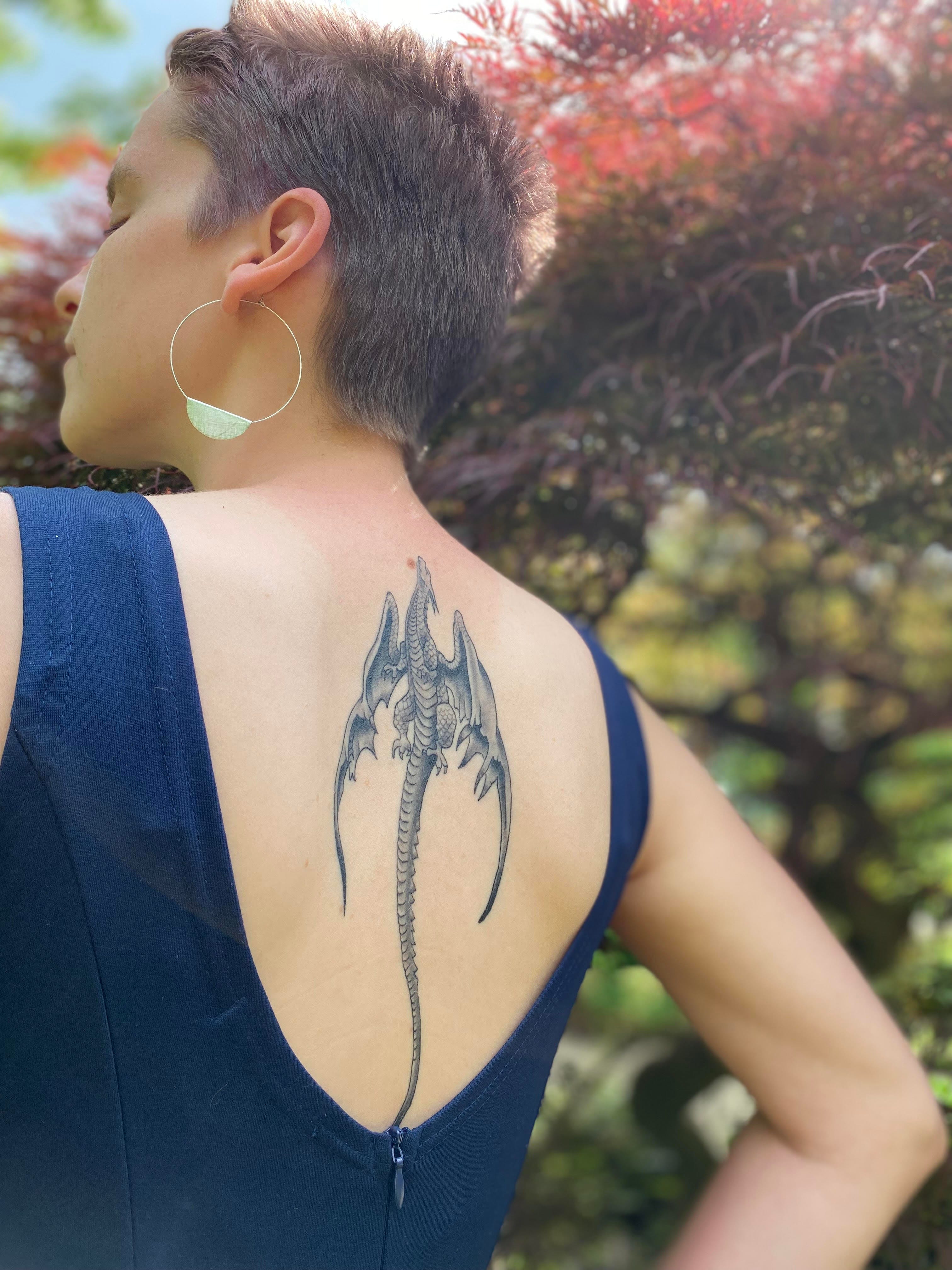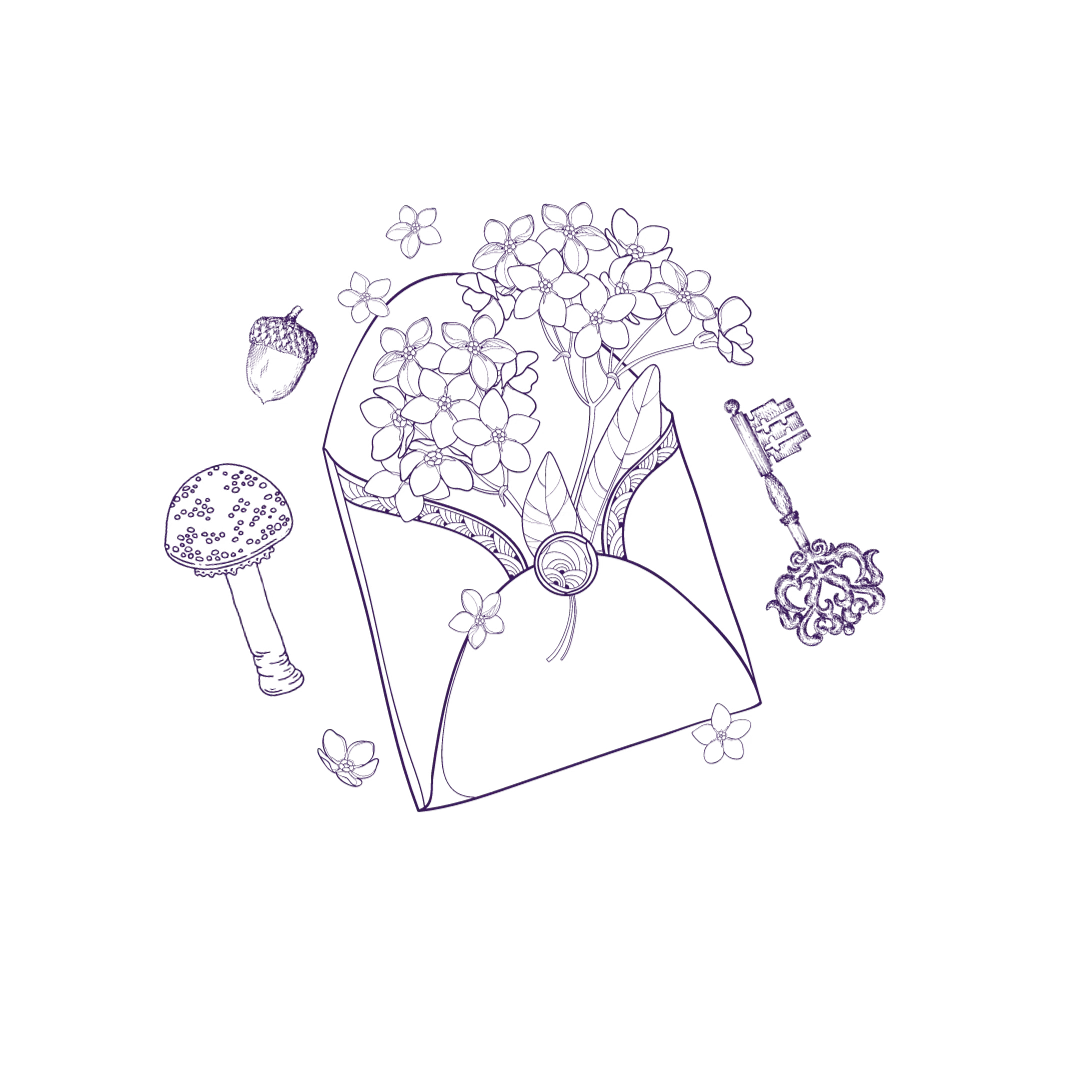Friends, today I’m excited to share this thoughtful interview with poet Julia Wellham (she/her)!
Julia has published a book of poetry, Threads of My Mind, and writes The How, Why, and So What Substack. Her byline reads, “Just a queer, neurodivergent poet and lover of all things fantasy, cozy, naturey, and nerdy. join me in exploring all the rabbit trails we can”.
Yes, please. She really is a kindred spirit.
I hope you enjoy this post, and please leave a comment for Julia and go check out her Substack!

You write about the act of writing as something that heals, explores, and alchemizes grief, identity, and trauma, which I think is beautiful. So many of us writers do. How did you come to this understanding?
I started writing poetry in the middle of nursing school. I’d experienced several acute traumatic events while concurrently working through cPTSD from childhood trauma and desperately needed a catharsis and coping mechanism. I think everyone was surprised poetry turned out to be what saved me given how vocal I’d been about how stupid poetry is and how much I hated it.
Analyzing poetry in my high school and college literature seminars had felt like having to solve a cipher where everyone but me had the key. But where previously I had been frustrated by the often abstract nature of poetry, now I found solace in being able to process pain with sweeping brush strokes instead of reliving everything in fine detail. Sometimes I would write hyperspecific poems. Other times I found I could explore an emotion I was feeling but within a different context where I didn’t have to reenact the original traumas.
While poetry was initially a solitary endeavor it quickly became a source of community. I joined the August Poetry Postcard Festival, an international poetry exchange, and started an Instagram account where I hosted a weekly interactive poetry series which I eventually dubbed Word Prompt Wednesday and continue to host on my Instagram and now Substack accounts. On Wednesdays, people send in random words and I use the entire word prompt set as the basis for a poem. It’s a really fun challenge and has greatly contributed to my growth as a writer - in particular because people often pick challenging words to stump me (all in the spirit of love).
Writing has continued to be a core part of my identity and ability to cope with … everything. While it might not be monetarily lucrative at this point, it is a huge source of sanity and joy which seems the ultimate prize in alchemy. I am grateful for how poetry has helped me know myself better and for the relationships I have made through sharing my poetry.
Do you have a favorite book of poetry, poet, or single poem?
Craig Randall’s To Chase the Sun was the first poetry collection I bought for myself. It’s the start of a trilogy which explores mental illness and the realities of living with mental health disorders. I deeply resonated with his work and found a lot of hope in his portrayal of both pain and joy.
Most recently, the poem “WWII German SS Lebensborn Stickpin $30” by Ava Nathaniel Winter has been haunting me (in a good way). I love the way she pinpoints a specific moment and draws you into a whole story with so few words to then flip the context and create two stories within a single moment. This poem is part of her collection Transgenesis which I got on Indie Bookstore Day. It’s definitely striking a cord in light of historical cycles that are repeating.
Do you have a writing practice, or any rituals that help you?
I don’t have any specific rituals, but I do have what I consider the ‘pre-writing’ phase which are ways I optimize my physical and mental spaces to facilitate creative processes. Movement is essential for me and physical stagnation eventually leads to mental stagnation. Going on a walk, practicing yoga, working on a physically intense project, or even just pacing helps me process thoughts and emotions. I also pull a lot of my poetry’s imagery and story elements from different patterns and juxtapositions I observe - either visually or metaphorically - so being out in nature and the community is key to fostering inspiration. Exploring a new place, wandering in nature, talking with my friends and strangers, and even reading all help form the patchwork of inspiration from which I pull when writing.
My therapist was recently telling me how research supports the therapeutic effects of bilateral stimulation beyond just a formal therapy setting. Examples she gave were reading and writing because of the back and forth movement of your eyes as well as the act of crossing your own midline axis when turning pages. I greatly benefited from EMDR so I’m intrigued by this idea of incorporating bilateral stimulation into daily practices. I’d love to make this part of a writing ritual.
How would you say being ND and queer influences your writing, either in practice, subject matter, or both?
I started writing poetry before I realized I was neurodivergent or queer so these have been an evolving part of my identity as a person and as a poet.
Overall I am more conscious of being neurodivergent and the negative ways ADHD impacts me i.e. the time blindness, inattentiveness, poor working memory, low motivation for anything that doesn’t hold a dopamine burst. However, ADHD does have a lot of positive contributions. I have been more mindful of how the commitment to creative passions, continuous daydreaming, and mental multitasking have influenced my writing practices and style.
I get a lot of comments that the imagery in my poems is very vivid and compelling and that I capture a moment well. I’ve also noticed that a decent amount of my regular readers are people who (like my previous self) have said they do not normally enjoy poetry yet find mine to be accessible and relatable. I think a lot of this comes from the neurodivergent ways in which I process sensory and emotional stimuli and then repackage and relay it in my poetry and stories.
As far as being queer goes, I was actually just recently telling a friend that I wish I wrote more queer poetry. But, I’ve realized I don’t even know what would make my poetry ‘queer enough’ to feel I earned this title. Thinking back on poetry I consider to be queer, I seem to qualify poems based on themes of romance, sex, and/or erotica, which as an asexual relationship anarchist, using sex and romance as the benchmark for personal and relational identity is actually antithetical to my personal value system.
Eventually, I would like to write poetry inspired by my integration into the world as an asexual panromantic - mainly because representation is crucial and I didn’t encounter ace/pan representation until well after college. However, first, I want to do the personal work to let go of the idea of needing to pass some invisible threshold to become a ‘queer poet.’
Thank you so much for sharing your generous words and thoughts with us, Julia. I hope you continue to connect with folks who resonate with you and your art and who support you on your writing journey.
Thanks for reading, friends. Meet you over the orchard wall.*
*One of my wonderful early readers for my book started signing her emails like this. I like it.
Thanks for being here. My AuDHD brain is a bit scattered and prone to change things last minute, but here in The Purple Vale you can count on reflections on folklore, fairy tales, and the seasons from my little corner of East Tennessee–which is unceded Cherokee and Muscogee land.









Thank you so much Stephanie for this kind introduction and your thoughtful questions! I quite enjoyed meditating on them as I came up with these answers 💜
Beautiful! Thank you for this introduction to someone I will definitely be following. Kindred spirit indeed!